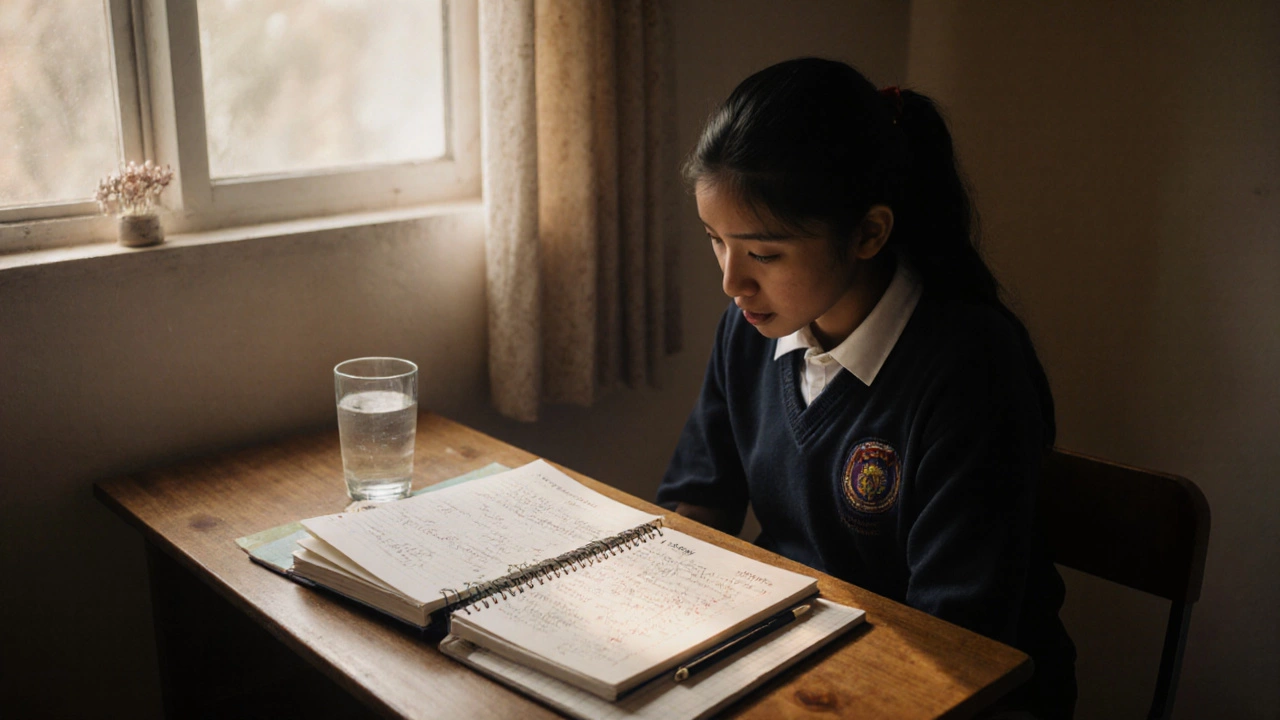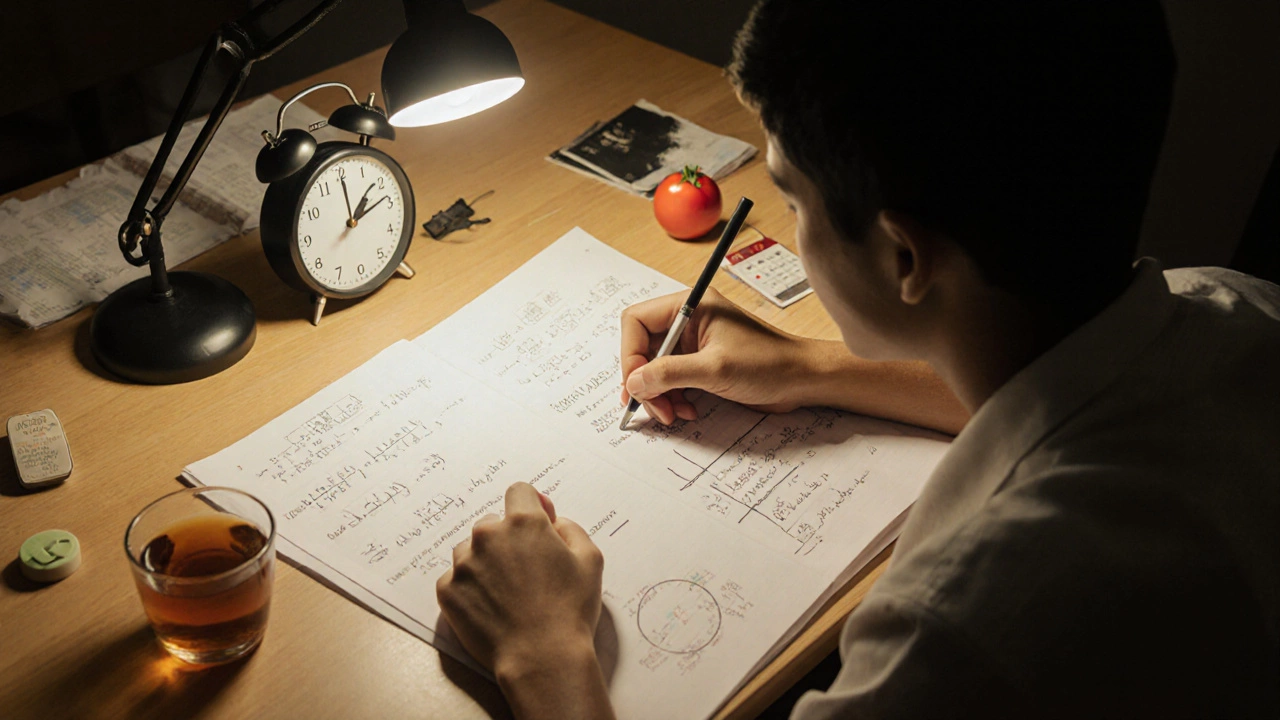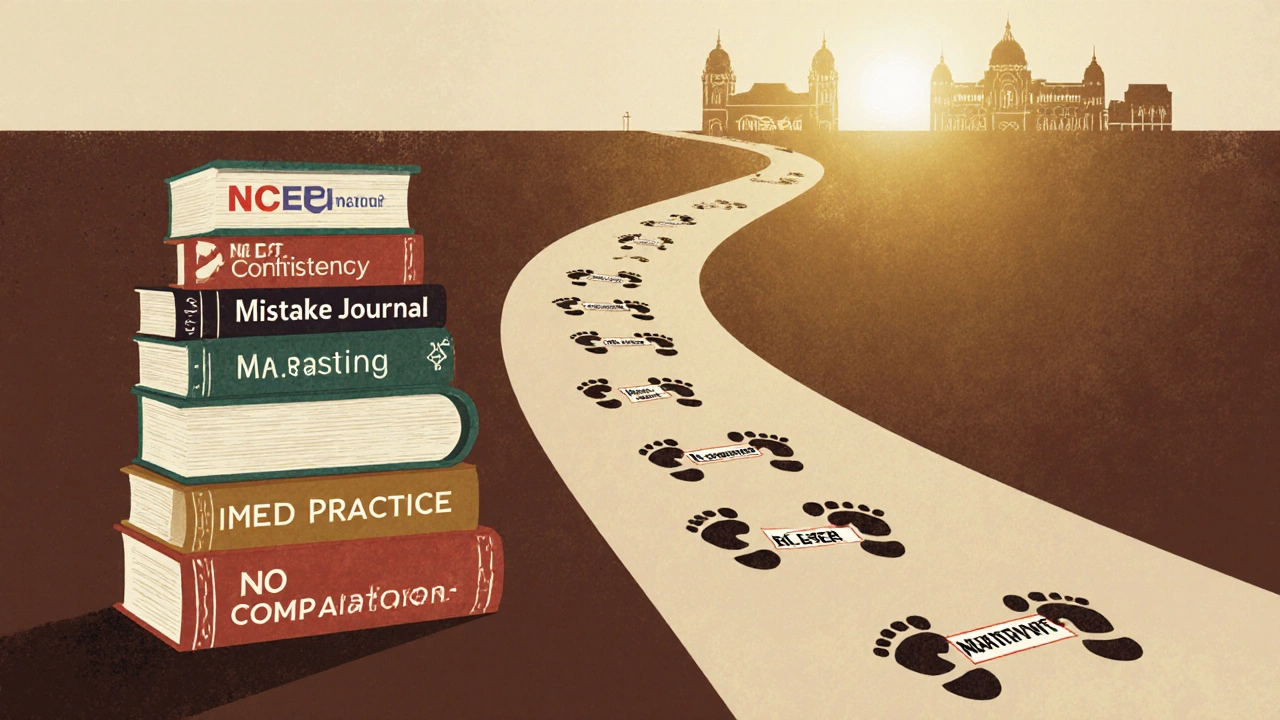How to Start Preparing for IIT JEE: A Step-by-Step Guide for Beginners
 Nov, 6 2025
Nov, 6 2025
IIT JEE Study Plan Builder
Build a realistic study schedule based on your current class level. Start preparing today with confidence.
Starting to prepare for IIT JEE isn’t about cramming textbooks or pulling all-nighters. It’s about building a system that works for you-over months, not weeks. If you’re in Class 9 or 10 and thinking about IIT, you’re already ahead of most students who wait until Class 11. The key isn’t how hard you work, but how smart you start.
Understand What You’re Really Preparing For
IIT JEE has two parts: JEE Main and JEE Advanced. JEE Main is the first filter-it’s accepted by NITs, IIITs, and other government colleges. JEE Advanced is the real gate to IITs. Only the top 2.5 lakh scorers in JEE Main get to sit for it. The syllabus covers Physics, Chemistry, and Mathematics from Classes 11 and 12. But here’s the catch: the questions don’t test memory. They test how well you can apply concepts under pressure.
For example, a JEE Advanced question might give you a pulley system with friction, variable mass, and a spring-all in one problem. You don’t memorize that. You need to break it down: Newton’s laws, energy conservation, kinematics, and free-body diagrams. That’s why rote learning fails. Understanding the IIT JEE preparation process means learning to think like an engineer, not a student.
Start with the Right Foundation
If you’re in Class 9 or 10, your focus should be on mastering NCERT-level concepts in Science and Math. Don’t jump into advanced JEE books yet. Most students fail because they skip the basics. You need to be fluent in algebra, quadratic equations, trigonometry, and basic geometry before touching calculus. In Chemistry, atomic structure, periodic table trends, and chemical bonding are non-negotiable.
Here’s what to do right now:
- Finish NCERT Class 9 and 10 Science and Math textbooks. Solve every example and exercise.
- Learn to solve problems without a calculator. JEE doesn’t allow one.
- Start writing down your thought process when solving problems. This builds clarity.
- Keep a mistake journal. Write down why you got a problem wrong-not just the answer.
Many students think they need coaching from Day 1. That’s not true. You can build a solid base with free YouTube channels like Khan Academy, Unacademy JEE, or Physics Wallah’s foundational playlists. Spend 45 minutes a day on concept clarity, not problem-solving.
Build a Realistic Study Schedule
Consistency beats intensity. If you study 2 hours daily for 300 days, you’ll do better than someone who studies 8 hours for 100 days and burns out. Your schedule should include:
- 45 minutes daily for revision of previous day’s topics
- 1 hour focused problem-solving (no distractions, no phone)
- 30 minutes reading theory or watching short concept videos
- 1 day off every week-no studying, no guilt
Don’t try to cover everything at once. Focus on one subject per week. For example:
- Week 1: Algebra + Kinematics
- Week 2: Organic Chemistry Basics + Laws of Motion
- Week 3: Trigonometry + Thermodynamics
Use the Pomodoro technique: 25 minutes of work, 5 minutes of break. After four cycles, take a 20-minute break. This keeps your brain fresh and prevents burnout.

Choose Your Study Materials Wisely
You don’t need 10 books. You need 2-3 good ones and the discipline to use them.
For Physics: Start with Concepts of Physics by H.C. Verma. It explains concepts clearly and has graded problems. Move to I.E. Irodov only after mastering Verma.
For Chemistry: NCERT is your Bible. Read it twice. Then use Organic Chemistry by Morrison & Boyd for deeper understanding. For Inorganic, stick to NCERT and make flashcards for reactions and exceptions.
For Mathematics: Objective Mathematics by R.D. Sharma is enough for basics. Once you’re comfortable, try Problems in Calculus of One Variable by I.A. Maron.
Don’t buy books just because someone says they’re ‘best.’ Use what works for you. Many students waste months switching books, never finishing any.
Practice Like You’re Taking the Exam
Practice isn’t just doing problems. It’s simulating exam conditions. Start giving timed mock tests as early as Class 10. Even if you don’t know the topic, sit for a 3-hour test with a timer. This trains your brain to handle pressure.
After each test:
- Review every wrong answer-why did you get it wrong? Misconception? Calculation error? Rushed reading?
- Track your speed. Are you spending too long on easy questions?
- Identify your weak chapters. Don’t avoid them. Attack them.
By Class 11, you should be taking at least one full mock every two weeks. By Class 12, aim for two per week. Use past papers from 2015-2025. JEE patterns change slightly every year, but the core thinking remains the same.
Avoid These 5 Common Mistakes
Most students who fail IIT JEE don’t fail because they’re not smart. They fail because they make the same mistakes over and over.
- Ignoring NCERT-It’s the source of 60% of JEE Main questions. Skip it, and you’re gambling.
- Chasing toppers’ schedules-If someone studies 12 hours a day, that doesn’t mean you should. Your capacity is different.
- Only solving easy problems-You won’t improve if you only do what you already know.
- Not analyzing mistakes-Repeating the same error 10 times is worse than making 10 new ones.
- Waiting for ‘perfect time’-There is no perfect time. Start now, even if it’s just 30 minutes a day.

Stay Mentally Strong
IIT JEE is as much a mental challenge as it is academic. You’ll have days when you feel stuck. You’ll see friends scoring better. You’ll doubt yourself. That’s normal.
Here’s how to handle it:
- Talk to someone-parent, teacher, or even a peer who’s also preparing. Isolation kills motivation.
- Exercise for 20 minutes daily. Walking, jogging, or even stretching helps reset your brain.
- Get 7-8 hours of sleep. Sleep is when your brain consolidates learning.
- Don’t compare your progress to others. Track your own growth week by week.
One student I know started with 40% in her first mock. She didn’t give up. Two years later, she got into IIT Bombay. Her secret? She never skipped her mistake journal.
What Comes After JEE Main?
If you clear JEE Main, you’ll get your rank. Use it to pick colleges. If you’re aiming for IIT, you must qualify for JEE Advanced. That’s when the difficulty spikes. Focus on advanced problem-solving, time management, and exam strategy.
If you don’t clear JEE Advanced but have a good JEE Main rank, don’t see it as failure. NITs and IIITs are excellent. Many top engineers graduated from them. Your degree matters less than your skills, projects, and mindset.
Final Thought: It’s a Marathon, Not a Sprint
Preparing for IIT JEE isn’t about becoming a genius. It’s about becoming consistent. It’s about showing up every day, even when you’re tired. It’s about learning from mistakes instead of hiding from them.
You don’t need to be the brightest. You just need to be the most persistent.
Can I start preparing for IIT JEE in Class 11?
Yes, you can. Many students start in Class 11 and still get into IITs. But you’ll need to work harder. Cover the Class 10 syllabus in 2-3 months while starting Class 11 topics. Focus on building speed and accuracy. Use NCERT and one reliable book per subject. Take mock tests early and often.
Is coaching necessary for IIT JEE preparation?
No, coaching isn’t necessary. Many top rankers are self-taught. Coaching helps if you need structure, doubt-clearing, and peer motivation. But if you’re disciplined, you can use free online resources-YouTube, Telegram channels, and previous year papers. The key is consistency, not the institute you attend.
How many hours should I study daily for IIT JEE?
There’s no magic number. A student who studies 4 focused hours daily with full concentration will do better than someone who studies 8 distracted hours. Focus on quality over quantity. In Class 9-10, 2-3 hours a day is enough. In Class 11-12, aim for 6-8 hours, including mock tests and revision.
Which subject should I start with in IIT JEE preparation?
Start with Mathematics. It’s the foundation for Physics and helps build problem-solving skills. Once you’re comfortable with algebra, trigonometry, and calculus basics, move to Physics. Chemistry can be studied alongside-it’s more about memory and patterns. But don’t neglect any subject. All three carry equal weight in the exam.
Can I crack IIT JEE while studying in a state board school?
Absolutely. IIT JEE is based on NCERT, which is the same across boards. State board students often have an advantage because they learn concepts more deeply. The only challenge is access to resources. Use free online platforms, join study groups, and solve past papers. Your board doesn’t define your potential-your effort does.
If you’re serious about IIT JEE, start today-not tomorrow. Open your notebook. Solve one problem. Write down one mistake. That’s how champions are made.